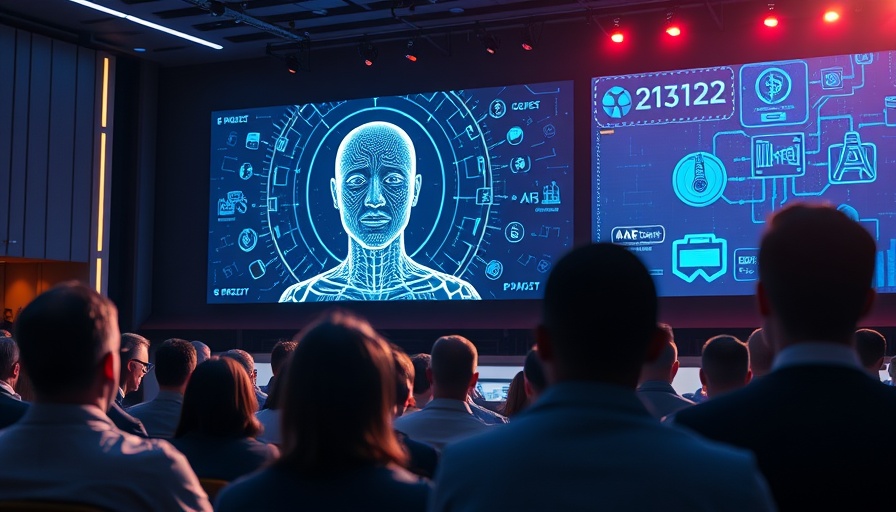
Revolutionizing AI: Open Source Innovations Shaking Up Tech
Recent advancements in artificial intelligence are setting the stage for a transformative era in technology, particularly with developments that prioritize accessibility and open source platforms. Leading the charge is Nvidia, who has unveiled an AI capable of interpreting a wide spectrum of audio cues—including conversations and music. This innovation, dubbed Audio Flamingo 3, represents a significant step forward in how AI comprehends sound, providing a toolkit that is entirely open source.
In 'This New Open Source AI Just Beat OpenAI and Google and It’s Free for Everyone', the discussion dives into groundbreaking advancements in artificial intelligence, exploring key insights that sparked deeper analysis on our end.
Game Changing Developments: Mistral and Boston University's Pod GPT
Nvidia isn't alone in this revolution. French startup Mistral has introduced Voxtrol, a family of sound-centric AI models. These tools come at a fraction of the cost of established competitors, making advanced audio applications more accessible for developers. Mistral's models understand multiple languages and handle complex audio inputs, further democratizing AI technology.
Meanwhile, Boston University has harnessed the power of podcasts to create Pod GPT, an AI trained on thousands of hours of real-world conversations in the medical field. This cutting-edge approach allows it to relay information in a conversational manner, making it much more relatable than traditional AI models that rely heavily on text.
The Surge of Multilingual Models: Google's and NCAI's Contributions
Google has also stepped up with its Gemini multilingual embedding model, facilitating communication across over 100 languages and significantly enhancing the capabilities of AI in multilingual contexts. As organizations continue to work toward global integration, tools like Google's promise greater utility.
In parallel, Korea's NCAI has launched four open-source vision language models, underlining the country's burgeoning place in the tech landscape and providing local developers with powerful resources.
Enterprise-Level Innovations: Amazon and Anthropic
Amazon's new AI coding tool, Kira, simplifies software development by converting plain English requests into production-ready code. This innovative approach removes barriers for developers, particularly in the ever-evolving tech landscape of Michigan, where startups seek rapid development paths.
On the financial front, Anthropic’s Claude model is transforming how businesses manage data analytics through real-time financial assessments. With connections to major finance platforms, Claude allows teams to make data-driven decisions, driving innovation in corporate finance.
Funding the Future: The Vision of Meera Morati
No discussion on AI innovations would be complete without mentioning Meera Morati, former CTO of OpenAI, who has just secured $2 billion to launch her start-up, Thinking Machines Lab. Set to change how multimodal AI functions, Morati's focus on making AI intuitive and accessible may resonate with Detroit's tech ecosystem, particularly in the areas of venture funding and emerging technology.
In Michigan, particularly in Metro Detroit, the atmosphere is ripe for breakthroughs in digital transformation as local tech startups harness these advancements in AI. Organizations are drawn to local incubators and coding bootcamps, emphasizing the importance of community-driven growth within Michigan's broader innovation hubs.
As the tech landscape continues to evolve, Michigan's position as a champion of innovation is more significant than ever. The latest advances in AI not only enhance operational efficiencies but also open up possibilities for new business ventures and collaborative efforts among local tech founders.
Embracing such trends through Michigan venture funding and partnerships can propel the state into a national leader in both AI and broader digital transformation. For those looking to dive into this promising landscape, Detroit tech events and community resources provide ample opportunities to engage and learn.
 Add Row
Add Row  Add
Add 



Write A Comment